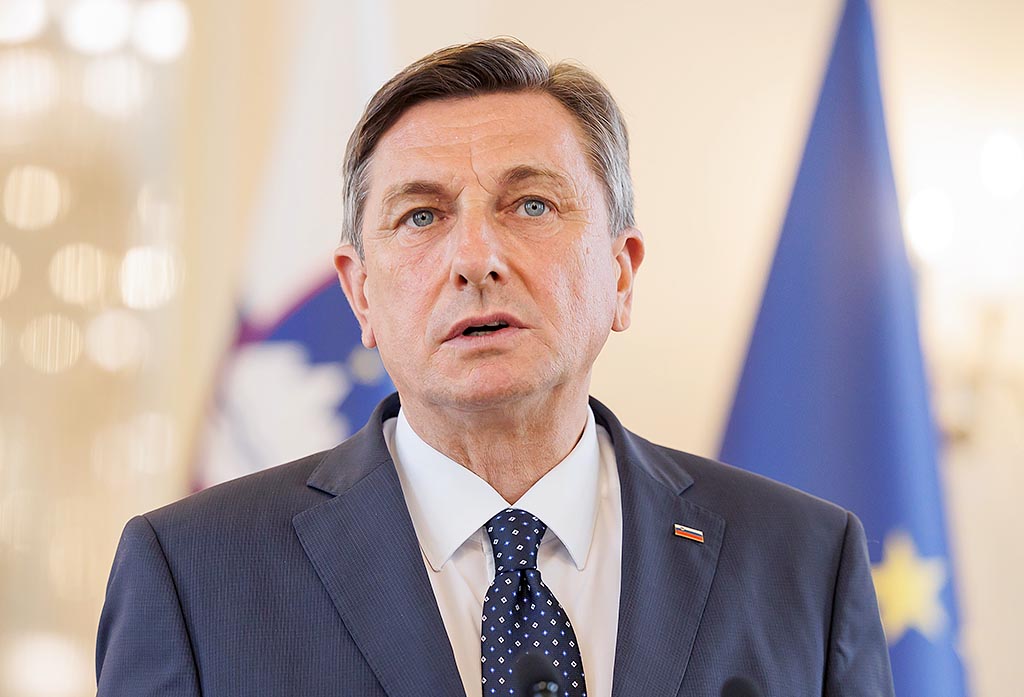Presidential elections await us in the autumn. About ten individuals are expected to consider running for president. Today, philosopher Nina Krajnik will present her candidacy at Slovene Society, and Marta Kos will become the official candidate of the Gibanje Svoboda party. On this occasion, we list the names of potential candidates and the responsibilities that the future president will have.
As the fall presidential election approaches, voters are also increasingly wondering who they will be able to trust with their vote. On Saturday, psychoanalyst and Doctor of Philosophy Nina Krajnik announced her candidacy on Facebook. She is the founder and president of the Slovenian Society for Lacanian Psychoanalysis, and we also know her as the editor-in-chief of the Juno book collection. Among the achievements she attributes to the introduction of philosophy for preschool children attending kindergarten. She is also a private partner of the mayor of Moravče, Milan Balažic. The public got to know her especially in the show with journalist Jože Možina and Vida Petrovčič in the TV Slovenia studio.
It is not yet known whether she intends to run in the presidential election with the support of voters or with any of the political options. Nataša Pirc Musar has also already announced her candidacy for president. In addition to Marta Kos, who (as already mentioned) will officially receive the status of the candidate of the Gibanje Svoboda party today, MEP Ljudmila Novak from the Nova Slovenija quota is the fourth potential candidate. As she said, people are urging her to do this and that is why she is still thinking about it. The final decision will be announced at the right time.
The mayor of Kočevje, Vladimir Prebilič, also announced his candidacy, pointing out that his advantage is daily contact with people. He sees himself as a political authority. Former Prime Minister Miro Cerar could also decide on a possible candidacy because some individuals from civil society are urging him to do so, but it is still too early for a final decision. There are currently fewer potential candidates on the political right (or centre). Some time ago, diplomat and legal expert Ernest Petrič and President of the National Council Alojz Kovšca were mentioned, both from the Povežimo Slovenijo movement. The latter told Nova24TV that he was “ready to withdraw to give space for the better candidates, but I am also ready to confront the better candidates from the other political side and leave all options open.” He is convinced that there is still enough time for reflection, and finally, he will not be dissatisfied even in the event of non-election, even in the case of some other function.
The SDS has not yet announced its candidate.
Only Danilo Türk received the proposal for a constitutional charge
Former Yugoslav diplomat Ivo Vajgl is also expected to consider this challenge. The office of President of the Republic is often associated with prestige and reputation. At the same time, it makes sense to say something about the competencies/obligations of this function. The winner of the elections will represent Slovenia abroad, and at the same time will be the new Supreme Commander of the Defence Forces. At the same time, the one who will call for parliamentary elections will also promulgate laws, regulate ambassadorial functions, issue lists relating to ratifications, pardon some prisoners, award decorations, and give names or even appoint some state officials. In accordance with the Constitution of the Republic of Slovenia, the President has representative and protocol powers. Some competencies are also listed in sectoral legislation.
The function of the President of the Republic may be revoked only by the Constitutional Court by a two-thirds majority if it finds serious violations of the Constitution or legislation. So far, only Danilo Türk has received the constitutional charge, but he has not been voted in the National Assembly. In the area of human resources, the President has a particular role to play in proposing candidates. These are the Prime Minister, constitutional judges, and the Judicial Council. The sectoral legislation allows him to propose the Governor and membership of the Bank of Slovenia, the Ombudsman, the President of the Court of Audit, the Information Commissioner, judges working in international courts, some members of the Judicial Council, etc. He appoints the president and both MPs of the CPC. During his first term, Borut Pahor introduced a novelty – that candidates present themselves publicly in the presidential palace.
Domen Mezeg


